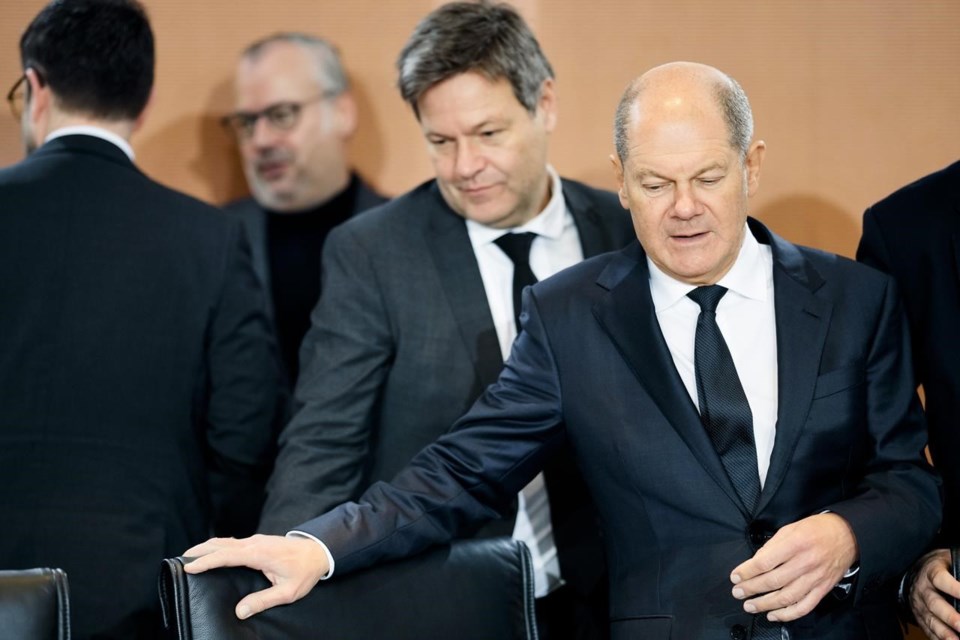FRANKFURT, Germany (AP) — The German government on Wednesday said it expects to eke out economic growth this year instead of a decline as Europe's largest economy and shells out support for consumers and businesses hit by higher energy costs.
The 2023 outlook improved to an 0.2% expansion from a 0.4% contraction that was expected in October, when Germany used to power factories, generate electricity and heat homes this winter. helped, as did a scramble to , or LNG, that comes by ship instead of pipeline from Russia.
Russia's state-owned exporter Gazprom has as countries support Ukraine during the war. Germany, one of the countries most dependent on Russian natural gas to power its industry, had no reception terminals for LNG at the start of the year. It now has three , at a cost of billions of euros.
“We have made the crisis manageable,” Vice Chancellor and Economy Minister Robert Habeck said at a news conference.
He said that while 0.2% growth “is not where we want to get to,” the measures taken to had prevented a steeper downturn. The improved outlook “didn't fall from heaven — we accomplished it, this country accomplished it.”
Habeck said growth would turn out close to zero for the last months of 2022 and the first part of this year and could be slightly negative.
“It is still likely that we will have a technical recession," defined as two consecutive quarters of falling output, but the downturn would be “shorter and milder” than earlier expected, he said.
Germany has introduced as part of 200 billion euros in added government spending, enabling people to buy 80% of their heat or electricity at fixed prices.
With , more economists are now saying the 20 countries that use the euro currency may avoid a shallow technical recession.
But high inflation is a significant drag on growth as erode consumer spending power.
David Mchugh, The Associated Press



